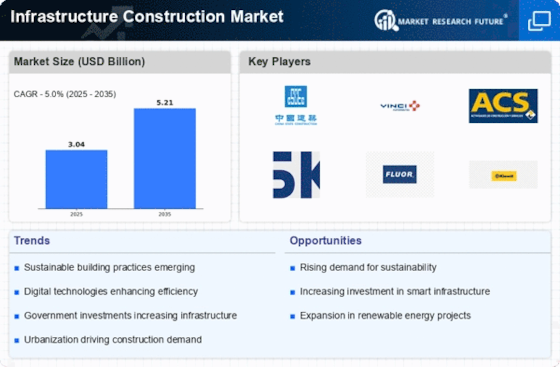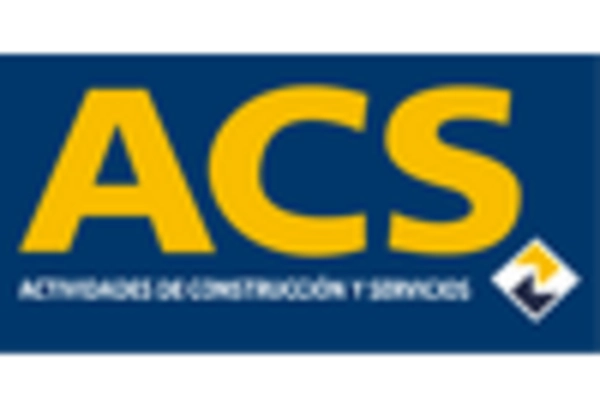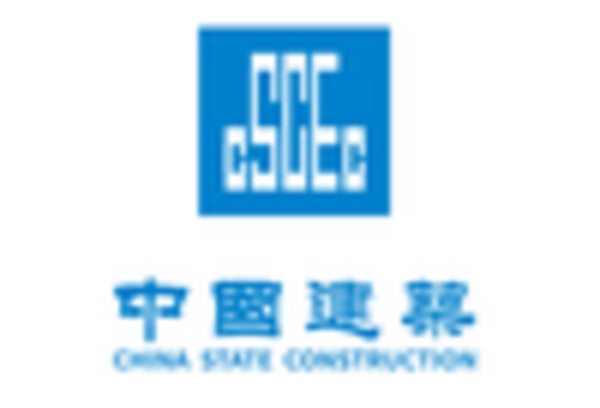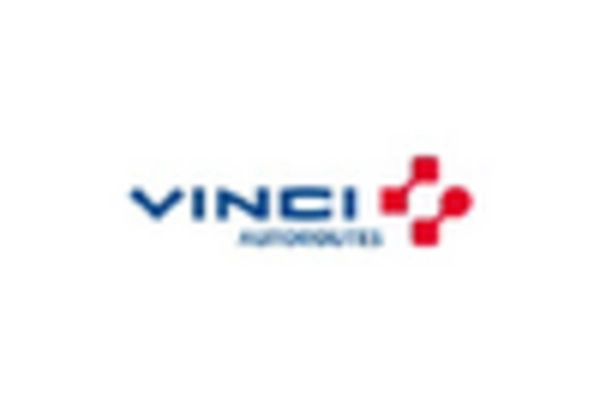Market Share
Infrastructure Construction Market Share Analysis
In the highly competitive landscape of the Infrastructure Construction market, companies deploy a variety of strategies to establish and fortify their market share positioning. One fundamental approach is differentiation, where companies aim to distinguish their infrastructure construction services from competitors by offering unique expertise, innovative engineering solutions, or adopting cutting-edge construction technologies. This might involve specializing in complex infrastructure projects, incorporating sustainable and green construction practices, or implementing advanced project management techniques. Through differentiation, companies attract clients seeking specific attributes, enabling them to secure a distinctive market share within the Infrastructure Construction industry.
Cost leadership is another prevalent strategy in this market, where companies strive to become the low-cost providers of infrastructure construction services without compromising quality. This involves optimizing construction processes, negotiating favorable deals with suppliers, and leveraging economies of scale. Cost leadership is effective in appealing to clients with budget constraints, particularly in the public sector where infrastructure projects often have financial limitations. However, maintaining high-quality standards, adhering to safety regulations, and delivering projects within specified timelines are crucial to ensure customer satisfaction and loyalty in this cost-driven strategy.
Market segmentation is widely adopted in the Infrastructure Construction industry. Companies analyze the diverse needs of their customer base, which may include government agencies, private developers, and multinational corporations, and create specialized construction services tailored for specific market segments. For instance, they might focus on transportation infrastructure, energy projects, or urban development. By addressing the unique requirements of each segment, companies can establish a robust presence within different markets, contributing to an overall enhanced market share.
Strategic partnerships and collaborations play a pivotal role in the Infrastructure Construction market. Companies often form alliances with architectural firms, engineering consultancies, or suppliers to strengthen their capabilities, enhance brand visibility, and expand market reach. Collaborative efforts can lead to shared resources, access to new technologies, and entry into new geographic markets. Through strategic partnerships, companies can navigate industry challenges more effectively, ultimately contributing to a more secure market share position.
Innovation stands as a cornerstone strategy in the Infrastructure Construction market, driven by the continual pursuit of improved construction methods, sustainability practices, and technological advancements. Companies invest in research and development to introduce construction technologies that enhance efficiency, reduce environmental impact, or improve safety on construction sites. Innovations in modular construction, 3D printing, or the use of Building Information Modeling (BIM) contribute to staying competitive and attracting clients seeking modern and sustainable construction solutions. By being at the forefront of innovation, companies position themselves as leaders in the Infrastructure Construction market, securing a significant market share.
Customer-centric strategies are gaining prominence as companies recognize the importance of providing exceptional customer experiences. This involves transparent communication, collaboration with clients throughout the project lifecycle, and responsive customer service. Exceptional customer service contributes to satisfaction and loyalty, encouraging clients to choose a particular construction company for their infrastructure needs. By focusing on building strong relationships with customers, companies can solidify their market share and maintain a competitive edge in the Infrastructure Construction industry.


















Leave a Comment